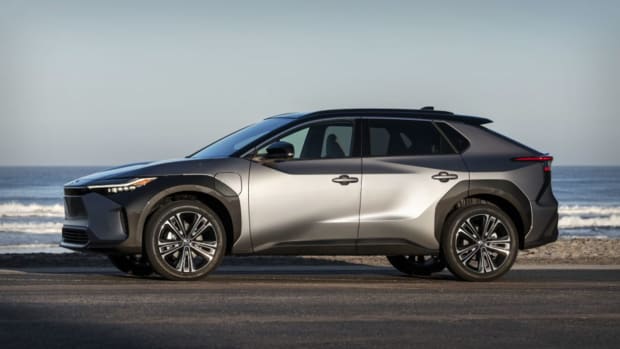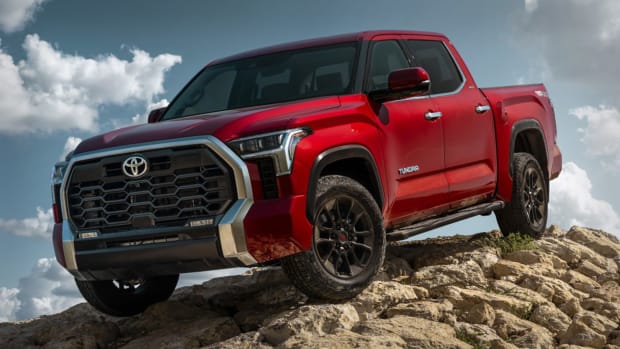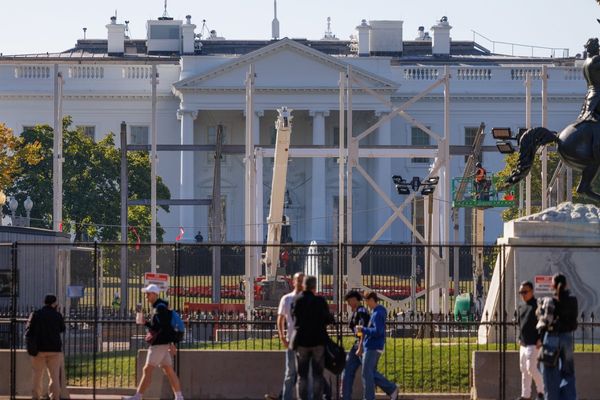Toyota Motor Corp. (TM) which launched its first U.S. electric vehicle bZ4x in April, has had a run of bad luck over the past year.
Despite rolling out its new all-electric vehicle to compete against Tesla (TSLA), Ford (F), General Motors (GM) and Volkswagen with great anticipation, the company had a few letdowns at the same time.
When the company rolled out its bZ4x, which has a manufacturer's retail price of $42,000, the company had already announced a cutback in total April production by 17%, then announced that it would slice company production by 10% in May because of supply chain issues.
The company also announced that the time that its new bZ4x would be "available in select states only and in extremely limited quantities."

Toyota
Troubles Started to Mount
Toyota on April 13 issued a noncompliance safety recall of 460,000 vehicles consisting of 10 models, including some hybrids but not the bZ4x, to repair a software issue involving the Vehicle Stability Control system, according to a statement.
On the same day, the Japanese automaker announced a second safety recall regarding 4,000 2022 Lexus NX vehicles to repair front shock absorbers mounted to body panels that might be missing some spot-welds, a statement said. Incorrect welding could eventually cause the shock absorber to separate from the mounting area resulting in loss of driving stability and increasing the risk of crash.
Earlier this year on Feb. 24, Toyota issued a recall of 37,000 of its 2021 C-HR vehicles for a radar sensor used by the Pre-Collision System that may not have been initialized properly. In that case, the system would be inoperative with no warning indicator to the driver and could increase the risk of crash in certain driving situations.
And on Jan. 26, Toyota announced a noncompliance recall on 42,000 2021 Venza hybrid vehicles as rear turn signal lamp bulbs could temporarily dim or deactivate when exposed to heavy rain or car washing. The condition might not meet federal safety standards and might cause drivers to not know their turn signal or hazard lights were activated leading to a risk of crash.
However, it wasn't long after rolling out the bZ4x that the wheels almost began falling off Toyota's first EV. Seriously. The company on June 23 issued a safety recall of the bZ4x, which after low-mileage use, all the hub bolts on wheels can loosen to the point where the wheels can detach from the vehicle. Detachment of a wheel or wheels could result in loss of control of the vehicle and an increased risk of a crash. The recall affects 260 vehicles, a statement said.

Toyota
Latest Problem Affects 46,000 Vehicles
The most recent vehicle safety recall occurred the next day on June 24 involving 46,000 2022 Tundra vehicles, including HEV, in the U.S. The vehicles have certain nuts on the rear axle assembly that can loosen over time, and, in some cases, fall off, potentially causing an axle shaft sub-assembly to separate from the axle. If the sub-assembly completely separates from the axle, it can affect the vehicle's stability and brake performance, increasing the risk of crash.
Toyota dealers will inspect and retighten the axle flange nuts and in some cases axle-related components may be replaced based on inspection results, a statement said.
Toyota in 2021 became the top seller of automobiles in the U.S. with over 1.9 million vehicles sold, surpassing Ford, which had over 1.8 million sold, according to Statista.







